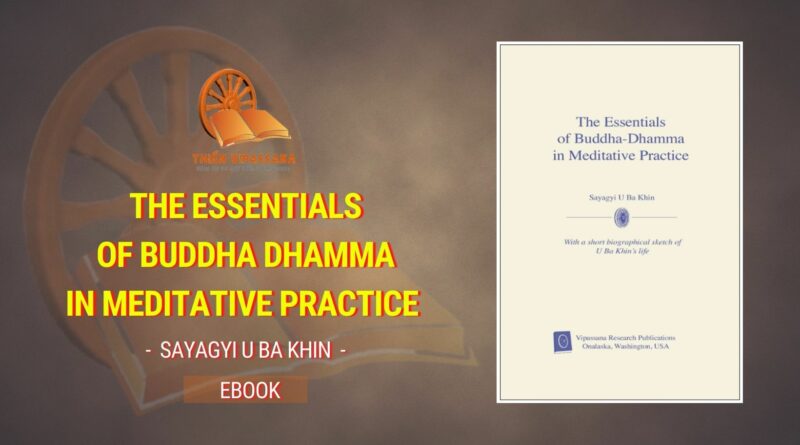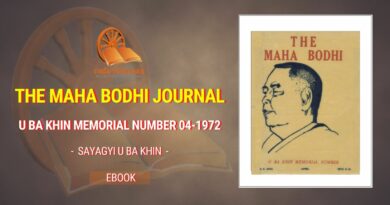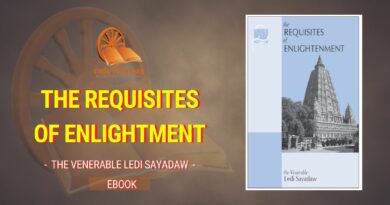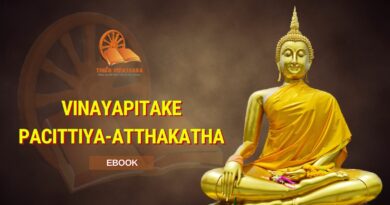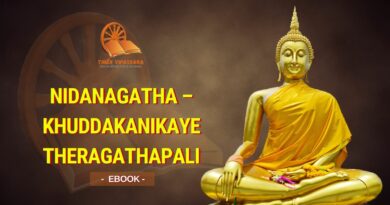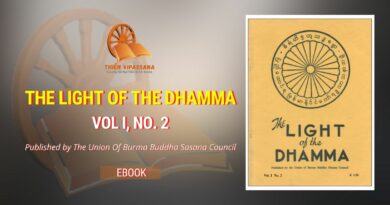The Essentials Of Buddha Dhamma In Meditative Practice
Sayagyi U Ba Khin
Anicca, Dukkha, Anatta — Impermanence, suffering and Egolessness — are the three essential characteristics of things in the Teaching of the Buddha. If you know Anicca correctly, you will know Dukkha as its corollary and Anatta as ultimate truth. It takes time to understand the three together.
Impermanence (anicca) is, of course, the essential fact which must be first experienced and understood by practice. Mere book-knowledge of the Buddha-Dhamma will not be enough for the correct understanding of Anicca because the experiential aspect will be missing. It is only through experiential understanding of the nature of Anicca as an ever-changing process within you that you can understand Anicca in the way the Buddha would like you to understand it. As in the days of the Buddha, so too now, this understanding of Anicca can be developed by persons who have no book-knowledge whatsoever of Buddhism.
To understand Impermanence (anicca) one must follow strictly and diligently the Eightfold Noble Path, which is divided into the three groups of Sila, Samadhi and Pañña — Morality, Concentration and Wisdom. Sila, or virtuous living, is the basis for Samadhi, control of the mind leading to one-pointedness. It is only when Samadhi is good that one can develop Pañña. Therefore, Sila and Samadhi are the prerequisites for Pañña. By Pañña is meant the understanding of Anicca, Dukkha and Anatta through the practice of Vipassana, i.e., insight meditation.
TẢI SÁCH BOOK TẠI ĐÂY: The Essentials Of Buddha Dhamma In Meditative Practice
Essentials of Buddha Dhamma in Meditative Practice, The
